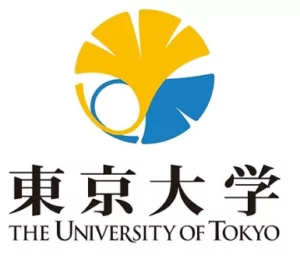Waters and the University of Tokyo Collaborate on Lipidomics Research

Digging deep into the human biome, Professor Yoshiya Oda of the Graduate School of Medicine at the University of Tokyo looks to ion mobility technology to uncover deposits of insight

We sat down with Prof. Oda, a leader in the field of lipidomics, to learn more about his research and the advantages that ion mobility mass spectrometry brings to it.
What are you trying to accomplish with your research?
Japan’s population is aging faster than any other country. Not only that but Japanese are living longer. That means that health care costs are rising and putting pressure on the Japanese economy. The goal of our research is to get a clearer picture of what it means to be healthy based on measurements of the molecular composition of human blood and plasma.
Why lipids?
Along with proteins and carbohydrates, lipids are fundamental to human beings. In our lab we are doing untargeted or global lipidomics. In other words, we want to identify and measure every lipid we can find because we know that changes in lipid profiles have been linked to various diseases. Lipids are difficult to analyze by any means other than mass spectrometry. They don’t dissolve in water. Many don’t have a strong UV absorber so they can’t be detected by conventional reversed phase chromatography and UV detection. In a biological system, the concentration range of various lipid species is very dramatic: Some are present in low concentrations while others are over-abundantly present.
With advances in ion mobility mass spectrometry, we can now determine the structure of lipids and identify individual lipid molecules regardless of their concentration or their similarity in terms of their mass to charge ratio or molecular weight.

I also chose to work with Waters UPLC and ion mobility mass spectrometers because the technique is fast. Throughput is very important to me. The University of Tokyo Hospital, with which we are affiliated, collects 1,300 blood samples from patients every day. My laboratory analyzes between 100 – 500 of these samples per day. Screening so many samples requires a high-throughput analytical assay. We have gotten our run times down to three minutes per sample.
What is the biggest challenge for you to overcome?
As humans we need energy in the form of coal or oil. To find these energy sources takes time and money. It’s like that with experimental data. With mass spectrometry, we can get information on 10,000 individual lipid molecules at once. These data are a rich resource of untapped knowledge. The era of big data is upon us: artificial intelligence (AI) is coming, but without data, AI is nothing. I think of mass spectrometry data as energy for artificial intelligence. AI can mine that data and give us a wealth of knowledge about human biology that we never had before.
With so many molecules to look at in any given sample, the challenge we face in identifying them is a better search engine so that we can identify them. It’s difficult to answer scientific questions and relate lipids to biological function without an adequate library or database and a reliable engine to search against it.
What drives you to excel?
My hobby is running. I like to run marathons. I ran six or seven last year in just over three hours. Scientific research as like a marathon. I don’t have a 100-meter goal. My goals are 26 miles away. Sometimes the pace is fast. Sometimes it slows down. And sometimes we have to take a rest. But as long as there is a goal, we have something to aim for.
For more information on Professor Oda and his research:
ResearchGate: https://www.researchgate.net/profile/Yoshiya_Oda
LinkedIn: https://www.linkedin.com/in/yoshiya-oda-b15a0b3b/?locale=zh_CN
Popular Topics
ACQUITY QDa (16) bioanalysis (11) biologics (14) biopharma (26) biopharmaceutical (36) biosimilars (11) biotherapeutics (16) case study (16) chromatography (14) data integrity (21) food analysis (12) HPLC (15) LC-MS (21) liquid chromatography (LC) (19) mass detection (15) mass spectrometry (MS) (54) method development (13) STEM (12)


